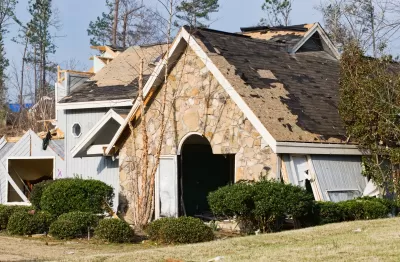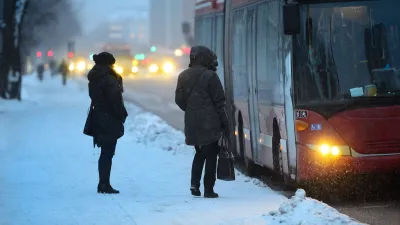Insurance companies are responding to the increasing frequency and intensity of severe weather events caused by climate change by raising home insurance premiums in high-risk states, adding another hurdle to housing affordability in the U.S.

According to an article from Fox Business, skyrocketing insurance premiums are putting pressure on homeowners across the country. The average cost of home insurance on a $300,000 property in the U.S. has risen 12.7 percent to approximately $1,770 a year, but that rate is even higher in states at higher risk for severe weather and other climate-related hazards, says a new report by Insurify, an insurance comparison website headquartered in Massachusetts.
As frequency and severity of those events are only expected to increase, insurance companies are reconsidering their coverage in these areas. Some are opting to leave states like Florida altogether, driving costs in these states even higher. These rising costs represent an obstacle to home ownership and “has pushed a key tenet of the American dream out of reach for millions of families,” writes Fox Business’s Megan Henney.
Here are the 10 states with the highest average insurance premiums in 2023, according to the report:
- Florida: $9,213/year, 14% increase in 2023, +421% compared to national average (NA)
- Oklahoma: $4,782/year, 24% increase, +170% national average
- Mississippi: $4,017/year, 23% increase, +127% national average
- Texas: $3,969/year, 18% increase, +124% national average
- Nebraska: $3,519, 14% increase, +99% national average
- Colorado: $3,308, 12% increase, +87% national average
- Kansas: $3,245/year, 19% increase, +83% national average
- New York: $1,942, 14% increase, +10% national average
- Georgia: $2,173, 17% increase, +23% national average
- Massachusetts: $1,649, 14% increase, -7% national average
Rising insurance costs are not only a challenge for existing homeowners, but combined with record-high housing prices and high interest rates, for potential home buyers as well. Even renters don’t escape unscathed, as landlords frequently pass along rising ownership costs in the form of rent increases to maintain profit margins.
FULL STORY: Surging home insurance costs could force families to leave these 10 states

Planetizen Federal Action Tracker
A weekly monitor of how Trump’s orders and actions are impacting planners and planning in America.

San Francisco's School District Spent $105M To Build Affordable Housing for Teachers — And That's Just the Beginning
SFUSD joins a growing list of school districts using their land holdings to address housing affordability challenges faced by their own employees.

The Tiny, Adorable $7,000 Car Turning Japan Onto EVs
The single seat Mibot charges from a regular plug as quickly as an iPad, and is about half the price of an average EV.

Seattle's Plan for Adopting Driverless Cars
Equity, safety, accessibility and affordability are front of mind as the city prepares for robotaxis and other autonomous vehicles.

As Trump Phases Out FEMA, Is It Time to Flee the Floodplains?
With less federal funding available for disaster relief efforts, the need to relocate at-risk communities is more urgent than ever.

With Protected Lanes, 460% More People Commute by Bike
For those needing more ammo, more data proving what we already knew is here.
Urban Design for Planners 1: Software Tools
This six-course series explores essential urban design concepts using open source software and equips planners with the tools they need to participate fully in the urban design process.
Planning for Universal Design
Learn the tools for implementing Universal Design in planning regulations.
Smith Gee Studio
City of Charlotte
City of Camden Redevelopment Agency
City of Astoria
Transportation Research & Education Center (TREC) at Portland State University
US High Speed Rail Association
City of Camden Redevelopment Agency
Municipality of Princeton (NJ)





























